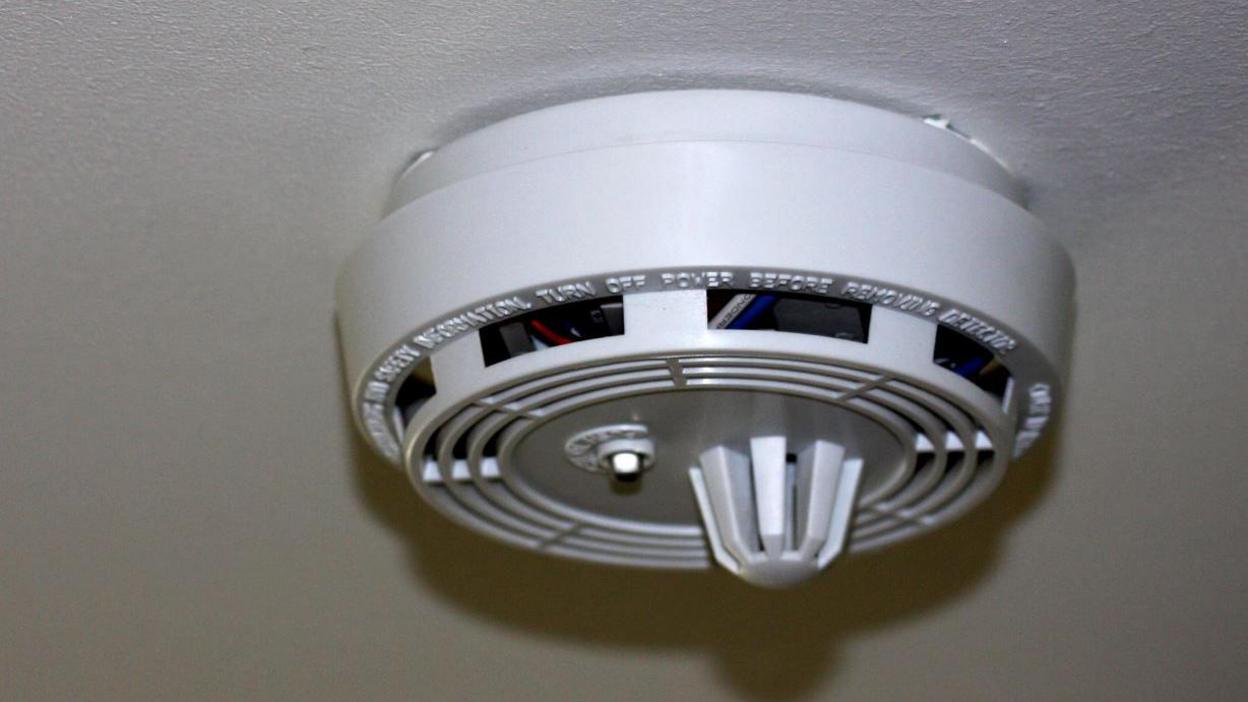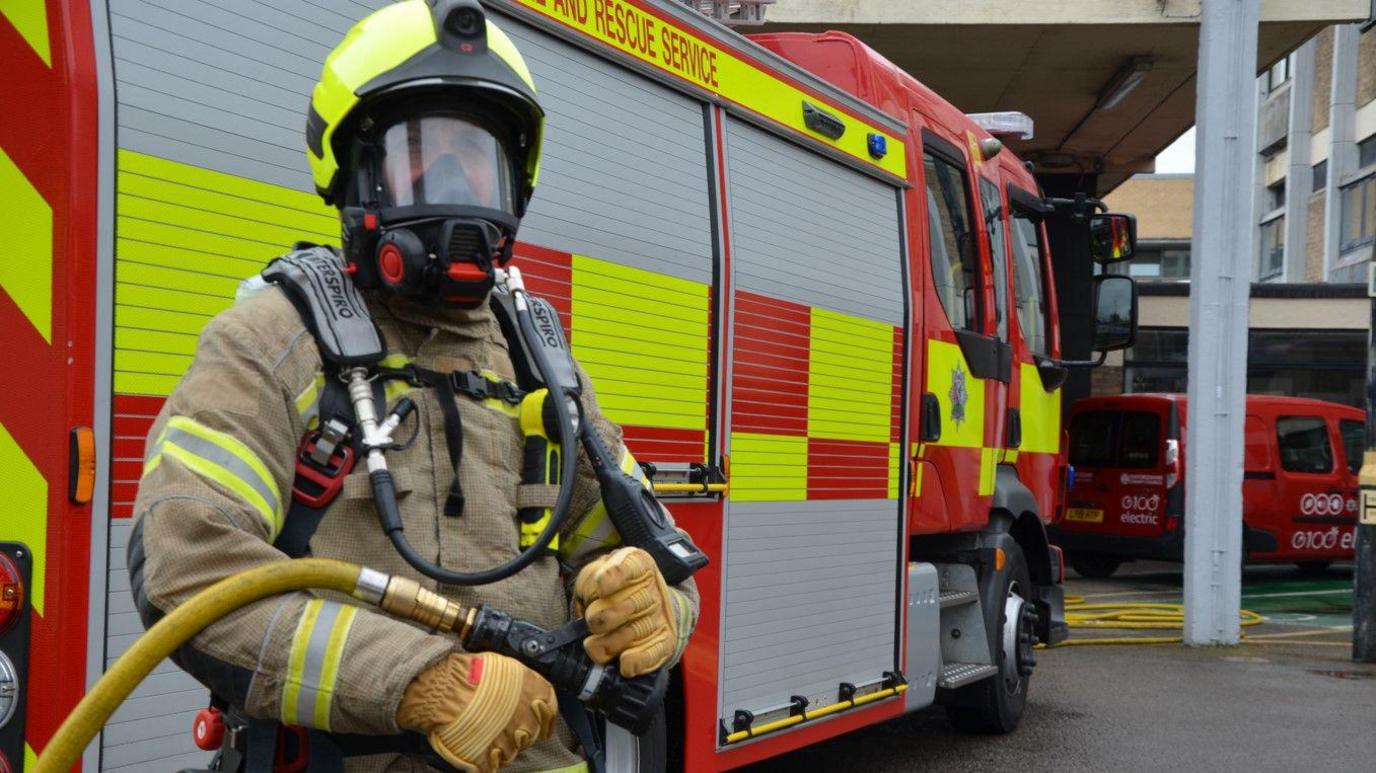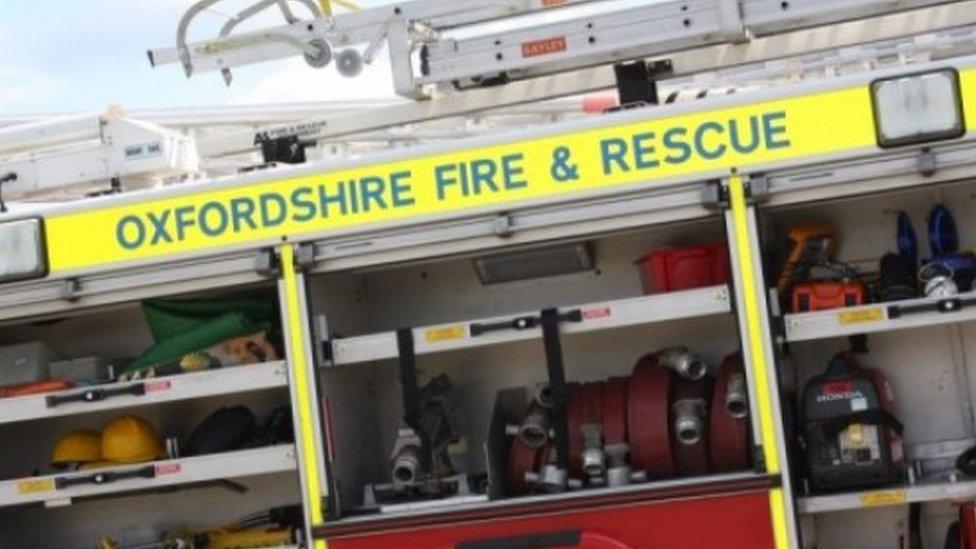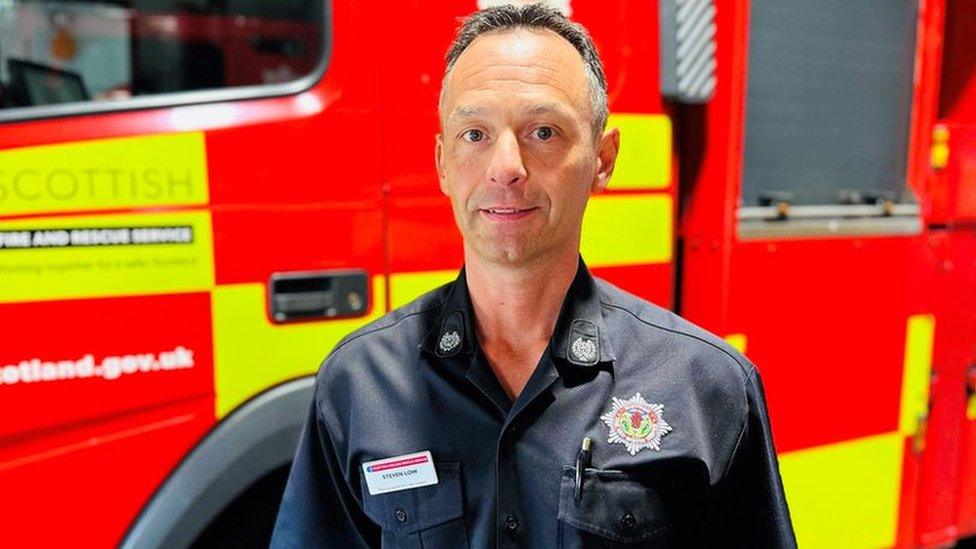Fire service to limit automatic alarm callouts

The service said 99% of automatic fire alarms it attended were false
- Published
A fire service has announced it will soon stop attending automatic fire alarm alerts unless a building is deemed to be high risk.
Oxfordshire Fire and Rescue Service (OFRS) said that from 10 October, "unless there are clear signs of fire", it would only respond to automatic alarms in high-risk buildings.
It said while fire alarms were essential for early fire detection, "most alarms are false, often triggered by cooking fumes, dust, or poor maintenance".
The move would reduce business disruptions and lost productivity and free up fire service resources for actual emergencies, said the service.
OFRS said it would always attend a confirmed fire but reported that 99% of automatic alarms it attended were false.
Common causes were poorly maintained panels and detectors, lack of staff training or outdated or unchecked fire risk assessments, it said.
In February, Royal Berkshire Fire and Rescue Service also said more than 99% alerts received from automatic fire alarms were false.
OFRS said unnecessary fire alarms diverted "critical resources", adding that it would only continue to respond to automatic alerts in high-risk buildings, including schools, hospitals, care homes, sheltered housing and private dwellings.
Similar policies have already been adopted by fire services in Sussex, Surrey and London.
OFRS advised, external businesses could reduce false alarms by logging and analysing the alerts to identify patterns, as well as upgrading outdated systems with modern technology.
Follow BBC South on Facebook, external, X, external, or Instagram, external. Send your story ideas to south.newsonline@bbc.co.uk or via WhatsApp on 0808 100 2240.
Related topics
- Published24 April 2024

- Published27 July 2022

- Published1 July 2023
